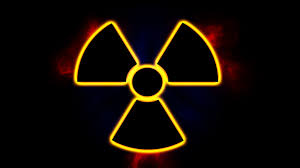记忆方法
1、a- "not" + tom- + -ic.
2、字面含义:uncut, indivisible. => indivisible particle.
3、最初,人们认为原子就是宇宙中不可分割的最小微粒,因此就给它取名为“atom”了,当然后来证明这种认为是错误的。
2、字面含义:uncut, indivisible. => indivisible particle.
3、最初,人们认为原子就是宇宙中不可分割的最小微粒,因此就给它取名为“atom”了,当然后来证明这种认为是错误的。
英语词源
- atomic (adj.)
- 1670s as a philosophical term (see atomistic); scientific sense dates from 1811, from atom + -ic. Atomic number is from 1821; atomic mass is from 1848. Atomic energy first recorded 1906 in modern sense (as intra-atomic energy from 1903).
March, 1903, was an historic date for chemistry. It is, also, as we shall show, a date to which, in all probability, the men of the future will often refer as the veritable beginning of the larger powers and energies that they will control. It was in March, 1903, that Curie and Laborde announced the heat-emitting power of radium. [Robert Kennedy Duncan, "The New Knowledge," 1906]
Atomic bomb first recorded 1914 in writings of H.G. Wells, who thought of it as a bomb "that would continue to explode indefinitely."When you can drop just one atomic bomb and wipe out Paris or Berlin, war will have become monstrous and impossible. [S. Strunsky, "Yale Review," January 1917]
Atomic Age is from 1945. Atomical is from 1640s.
权威例句
- 1. Scientists transmuted matter into pure energy and exploded the first atomic bomb.
- 科学家将物质转化为纯粹的能量,引爆了第一颗原子弹。
- 2. You may conceive a new world in the atomic age.
- 你可以设想出原子时代的新世界.
- 3. They were monitoring the upper air to collect evidence of atomic explosions.
- 他们正在检测高空空气以收集原子爆炸的证据.
- 4. We should take part in the peaceful uses of atomic energy.
- 我们应该参与原子能的和平应用.
- 5. The atomic reactor generates enormous amounts of thermal energy.
- 原子反应堆发出大量的热能.

